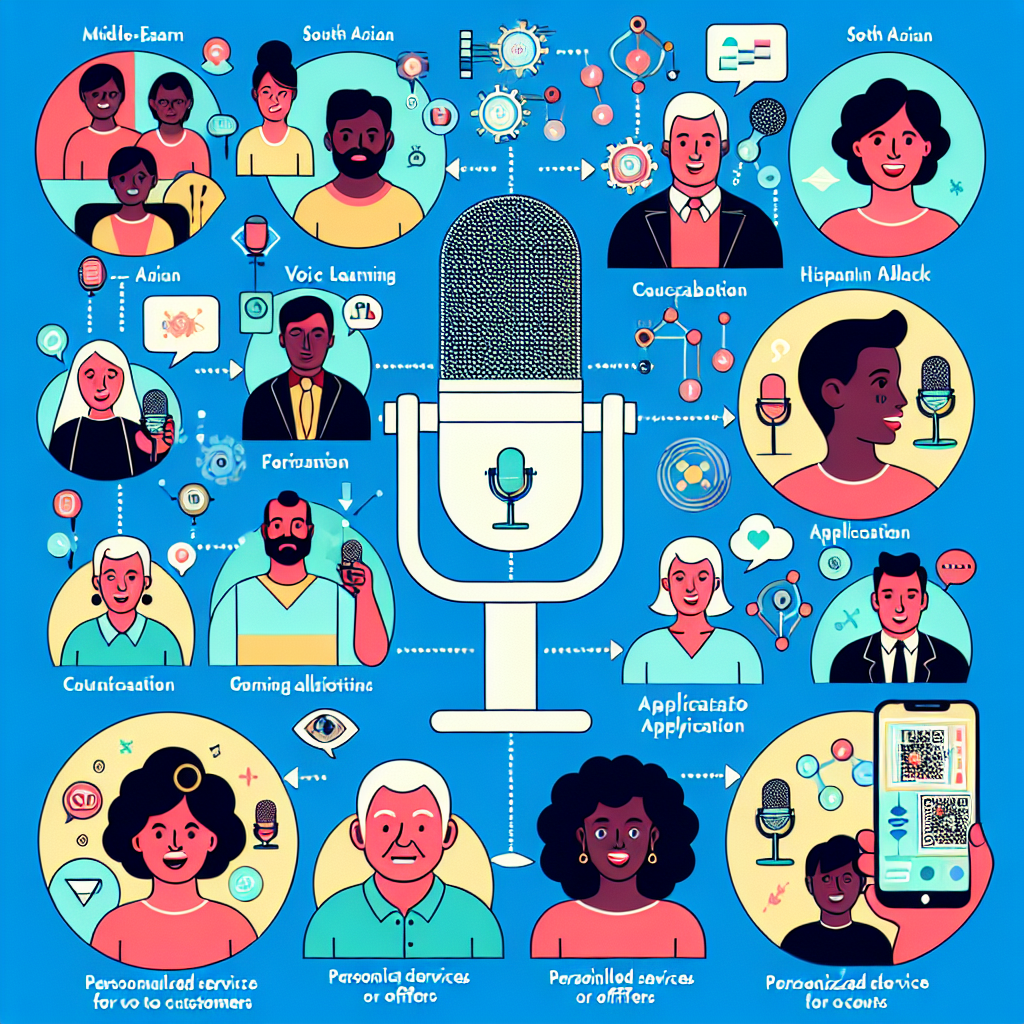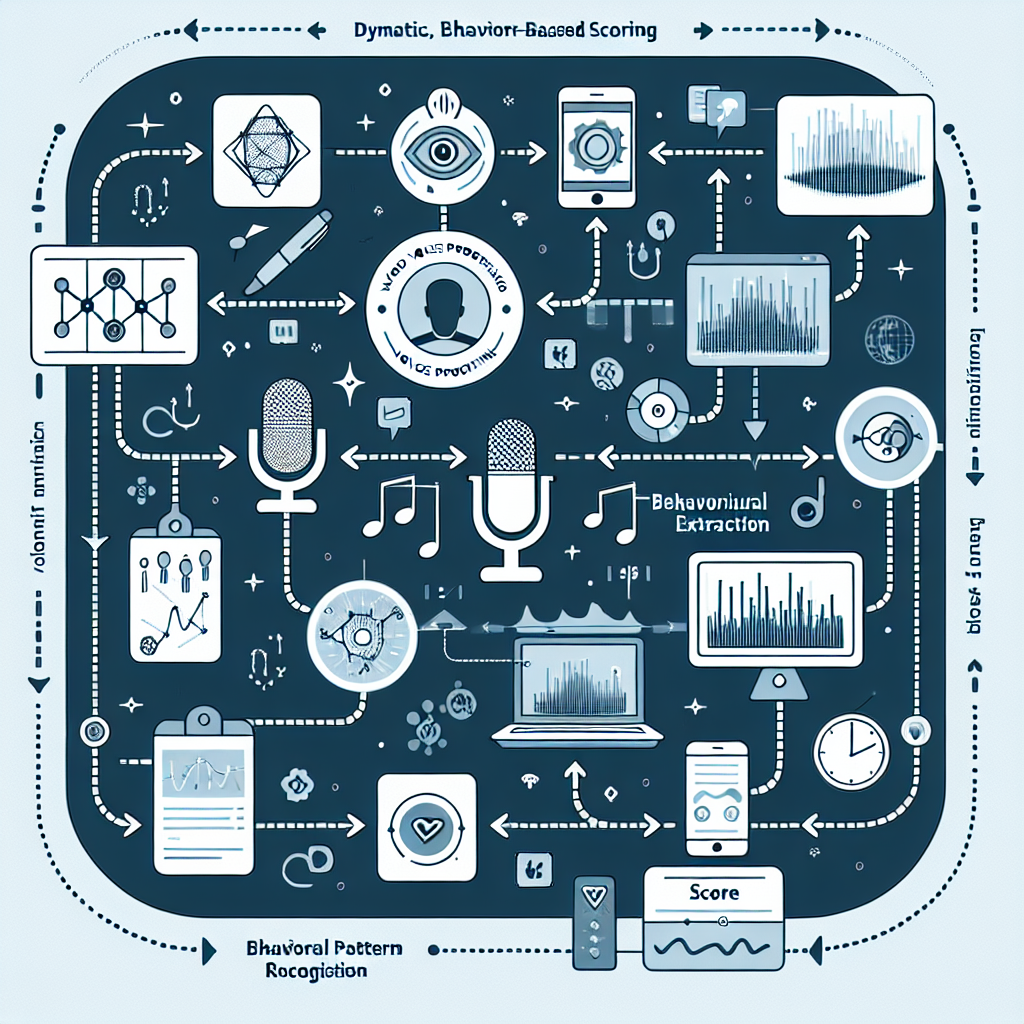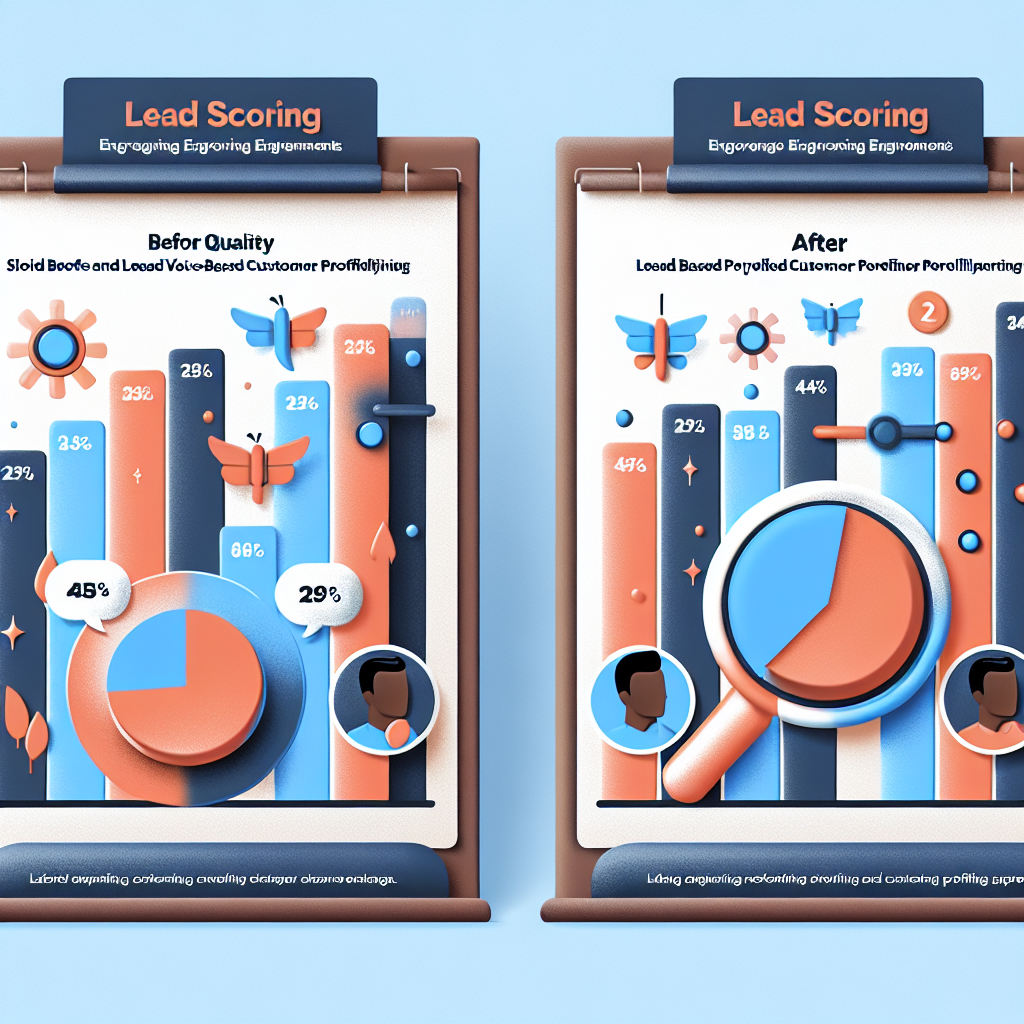
In the dawn of digital transformation, brands continuously strive to understand and cater to their customers on a more profound level. One emerging technology on the front line of this shift is voice-based customer profiling. Leveraging advanced speech recognition technology and artificial intelligence (AI), this approach aims to paint a more granular and authentic picture of customers' behaviors and preferences based on their spoken communications.

Unlike traditional text-based data analysis, voice-based customer profiling doesn't just focus on what a customer says, it dives into how they say it. This technology analyses numerous dimensions of speech such as patterns, tone, pitch, and other vocal attributes — factors that usually go unnoticed in written customer feedback. Thus, enhancing the depth and quality of a business's customer insights.
These insights are then fed into a larger data analysis framework, using advanced business intelligence dashboards and sophisticated machine learning algorithms — mostly associated with sales AI applications. From there, they contribute to a more precise, dynamic, and ultimately, valuable lead scoring model.
In this fast-paced world, where understanding the customer is the key to sustainable growth, voice-based customer profiling could make all the difference. Not only can it result in more potent sales pitches and targeted marketing campaigns, but it could also foster stronger, more genuine connections with customers.
Ahead, we dive deeper into how this innovative blend of voice recognition and AI analytics works, its applications, and why businesses should consider integrating it into their lead scoring methods.
The advent of natural language Processing (NLP) and machine learning technologies, such as sentiment analysis, has made the concept of Voice-Based Customer Profiling not only feasible but remarkably beneficial for businesses. These advanced technologies are instrumental in extracting meaningful insights from customer voice interactions to improve lead scoring.
Natural Language Processing (NLP) is a profound and revolutionary aspect of artificial intelligence that enables machines to understand, interpret, and respond to human languages. It serves as the backbone of voice-based profiling, helping to convert voice data into a structured format that can be further analyzed and used for personalized customer profiling. NLP allows businesses to understand the intent behind every customer interaction, bringing out hidden business opportunities.
Views communicated in voice-based interactions are usually subjective and contain a wealth of information about the customer's sentiment. Here comes the role of Sentiment Analysis, another key component of voice-based customer profiling. These sophisticated algorithms can detect emotions such as happiness, anger, sadness, and more from a customer's voice. The gathered data can then be used for better lead scoring and segmentation, ultimately leading to more strategic marketing and sales initiatives.
Another crucial technology that enables voice-based customer profiling is Speech Recognition. This is how machines understand human languages, transcribe spoken words into written format, and help in segmenting and categorizing calls based on the customer’s queries, intent, and sentiment during the call.
Ultimately, these AI-driven technologies are game-changers in the realm of customer profiling. With Voice-Based Customer Profiling, businesses can tap into previously inaccessible customer insights from voice interactions, thereby significantly improving their lead scoring efficiency and, ultimately, their bottom line.
The intersection of voice analytics and Customer Relationship Management (CRM) is paving the way for more dynamic engagement strategies. Businesses are increasingly recognizing the potential of voice-based customer profiling to power deeper insights into lead behavior, and in turn, boost lead scoring outcomes.
Essentially, voice profiling involves analyzing voice recordings of customer interactions to gather key behavioral data about the caller. This includes tracking aspects like emotion, tone, pace, and language use. These variables, when applied to lead scoring, can greatly enhance the understanding of customer preferences and behaviors.

Integrating voice profiling with existing CRM systems doesn't have to be an overwhelming task. Most CRM systems today have options to easily incorporate external data sources, making it feasible to streamline voice analytics data into your existing customer records.
With this integration, businesses can enrich leads with behavior-based scoring metrics. This ensures your sales and marketing teams are not only basing their efforts on traditional metrics like purchase history and demographic attributes but also on more inherent and personal customer characteristics captured through their voice.
To ensure seamless integration, consider working with a voice analytics provider who can offer a solution that securely and efficiently processes the voice data, preparing it for smooth integration with your CRM. Ensure they have proven competency when it comes to upholding GDPR compliance standards and other data privacy regulations.
Embracing voice-based customer profiling for improved lead scoring means adding a new layer of potency to your CRM-driven strategies. With it, businesses stand to create more targeted campaigns, improve customer relationships, and ultimately, drive more sales.
In the evolving landscape of customer interactions, Voice-Based Customer Profiling emerges as a state-of-the-art tool for Improved Lead Scoring. By analysing the vocal characteristics of customers, businesses can enhance their lead qualification process, develop personalized marketing strategies, and streamline their sales conversion workflows.
Firstly, accuracy in lead qualification is crucial for productive sales efforts. Traditional methods often rely on self-reported information which may not offer the most reliable depiction of customer behavior. Voice-based profiling, however, provides unbiased lead scoring based on linguistic and paralinguistic cues . The technology's ability to gauge emotions and personality traits offers critical insights into lead behavior and helps in better predicting customer actions.
Secondly, it enables businesses to craft personalized marketing strategies. Advanced analytics of vocal data can reveal demographic and psychographic factors, such as age and personality traits that can be employed for tailor-making marketing interventions. Such a targeted approach enables businesses to engage with prospects effectively and offers a more engaging customer journey.
Lastly, intuitive lead scoring can streamline the sales conversion process. Aided by voice-based customer profiling, sales teams can focus their efforts on leads with the highest scoring, ensuring an efficient conversion process. The technology helps optimize resource allocation and promotes strategic decision-making within sales teams.
Overall, incorporating voice-based customer profiling into lead scoring offers meaningful advantages. By adopting this strategy, businesses stand to gain from improved accuracy, personalized marketing, and enhanced sales conversion processes, ultimately striving towards optimal customer interactions and bolstered growth.
In recent years, advancements in technology have pushed new boundaries with voice-based customer profiling. Several industries and companies have capitalized on these innovations to redefine their lead scoring systems. Here, we'll explore a few significant case studies and success stories.

The insurance industry has always been data-heavy, with much of the customer information contained in voice records from customer service calls. A notable case study in this area is from OneConnect, a subsidiary of Ping An Insurance. They successfully implemented voice-based customer profiling to better understand their customers' requirements and preferences, thus enhancing their lead scoring and conversion rate. By analyzing customers' voice data, OneConnect was able to anticipate their needs and cater to them proactively. By so doing, they witnessed a significant improvement in customer satisfaction and revenue growth.
Similarly, the telecom sector has also benefited from this technology. Vonage, a well-known telecommunication company in the US, employed Artificial Intelligence (AI) to analyze data from customer service calls, gathering critical information about their customer's experiences, interests, and problems. This allowed them to streamline their lead scoring system and target marketing efforts more efficiently. Consequently, they reported a rise in customer acquisition and retention.
Despite being relatively new, the use of Voice-Based Customer Profiling for improved lead scoring has shown promising results in various sectors. As these success stories illustrate, the information gained from a customer's voice can be extremely valuable in understanding their needs and behaviors, ultimately leading to more effective lead scoring and increased customer satisfaction.
As the digital age continues to evolve, the process of customer profiling and lead scoring is taking an innovative turn with the use of Voice-Based Customer Interaction. With the ongoing advancements in technology − specifically voice-recognition technologies and related AI systems − businesses are increasingly exploring the use of voice data to gain deeper insights into their customers and prospects. However, as this method advances, it’s essential to consider the associated privacy concerns.
While traditional profiling techniques have predominantly used text-based and numerical data, the use of voice data offers a wealth of intricate details about a customer's personal preferences, behavioural patterns, and sentiment. This leading-edge approach, often tagged voice analytics, is becoming a powerful tool in analyzing customer interaction and in identifying potential leads. Deciphering vocal nuances such as tone, pace, and volume, not only gives an accurate prediction about the customer's intent but also assists in automating and tailoring responses in real-time.
However, it's crucial to address potential privacy concerns. Ensuring user consent and anonymizing data are paramount. Protecting user privacy is not just a legal requirement but builds trust with customers − an indispensable element for any long-term business plan. Technological advancements may assist in this, by allowing voice data to be anonymized and secure at the point of collection.
The future of voice technology in customer profiling and lead scoring looks exciting, with the potential to provide even greater insights into customer behaviour, while also promoting interactive dialogue. With increasing technology advancements and a keen eye on privacy concerns, voice-based customer profiling is poised to revolutionize how we understand and interact with customers.
Start your free trial for My AI Front Desk today, it takes minutes to setup!








